Advertisement
Climate Change in Mass.
Concerned Citizens And Fishermen Help Scientists Track Ocean Changes In Effort To Fight Climate Change
Resume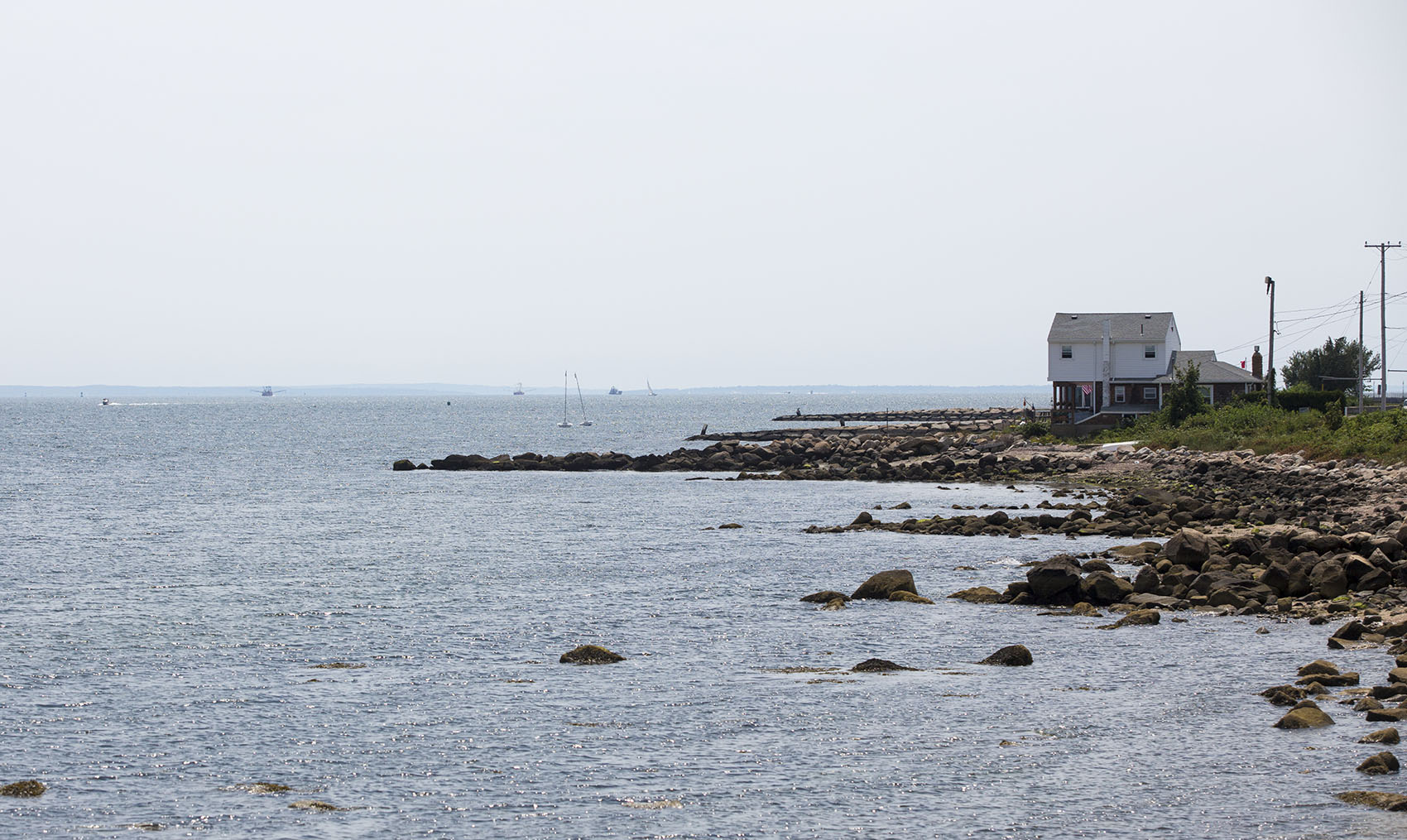
It's a cloudy, cool July morning, and we've come to the docks at Fairhaven Shipyard, near New Bedford, to meet Chris Parks. She's a tall, elegant, retired Boston banker in jeans and a sweatshirt.
Parks is a volunteer with the Buzzards Bay Coalition. Residents formed the group 30 years ago to help the struggling bay.
She's got a plastic bottle attached to a long metal pole. She submerges it and fills it with sea water. Then she pulls out her tool box full of vials and chemicals. She mixes and measures.
Parks determines the water is pretty cool on this day — 67 degrees.
In another test, she lowers a disk on a string directly into the bay and notes the point at which the white on the disk is no longer visible. She determines she can see down 1.85 meters — not quite as far as she could see earlier in the summer. The water is getting murkier because of algae that flourishes in the warmer months.
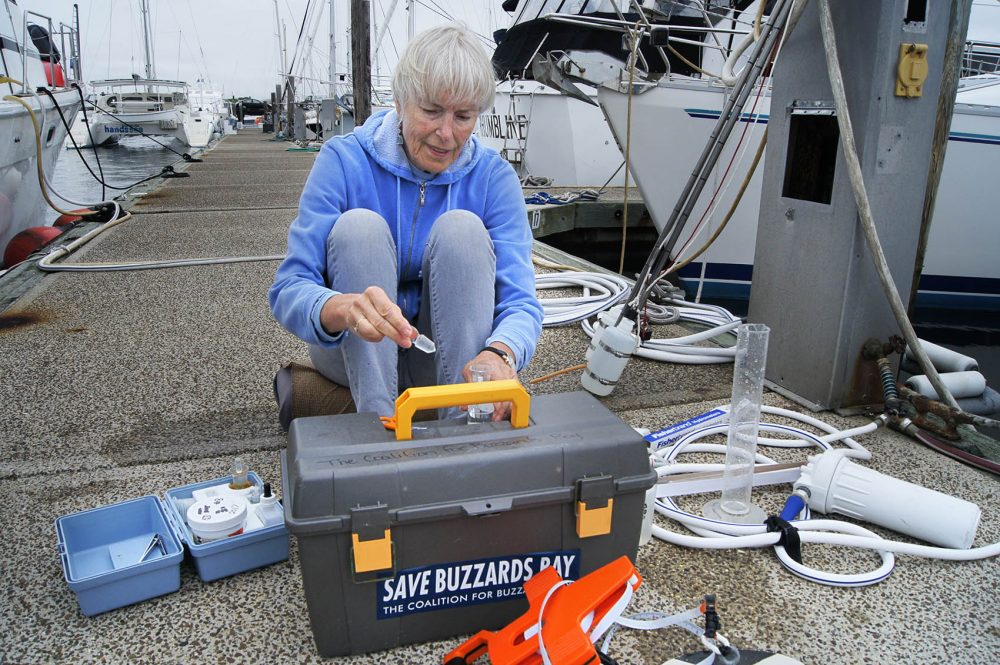
In addition to temperature and clarity, Parks tests the water for how much salt and oxygen are in it.
She's been coming to this dock, fastidiously, one or two mornings a week for 17 years.
"I'm doing it because it's one of the few things that I can do that is a tangible task towards helping the environment," Parks says. "It's a little bit of science that helps tell us what's going on in Buzzards Bay."
Treasure Trove Of Data
What's going on is that the water is warming — and that may be contributing to long-lasting pollution problems in the bay.
The data that volunteers like Parks and staffers at the Buzzards Bay Coalition have collected for 25 years represent a treasure trove.
The coalition's science director, Rachel Jakuba, approached Woods Hole scientists with the data a few years ago. Those scientists jumped, and a partnership was born. Now dozens of local residents are working in conjunction with expert scientists to track data about local waters in an effort help fight climate change.
"We're seeing rises in temperature up to 4 degrees, about 4 degrees Fahrenheit. So that's average summertime temperature," Jakuba says, calling the change "significant."
That's the change since 1992. And that warming water appears to be exacerbating the algae that's caused by nitrogen pollution in the bay. Nitrogen comes from wastewater treatment plants, home septic tanks, and lawn fertilizers.
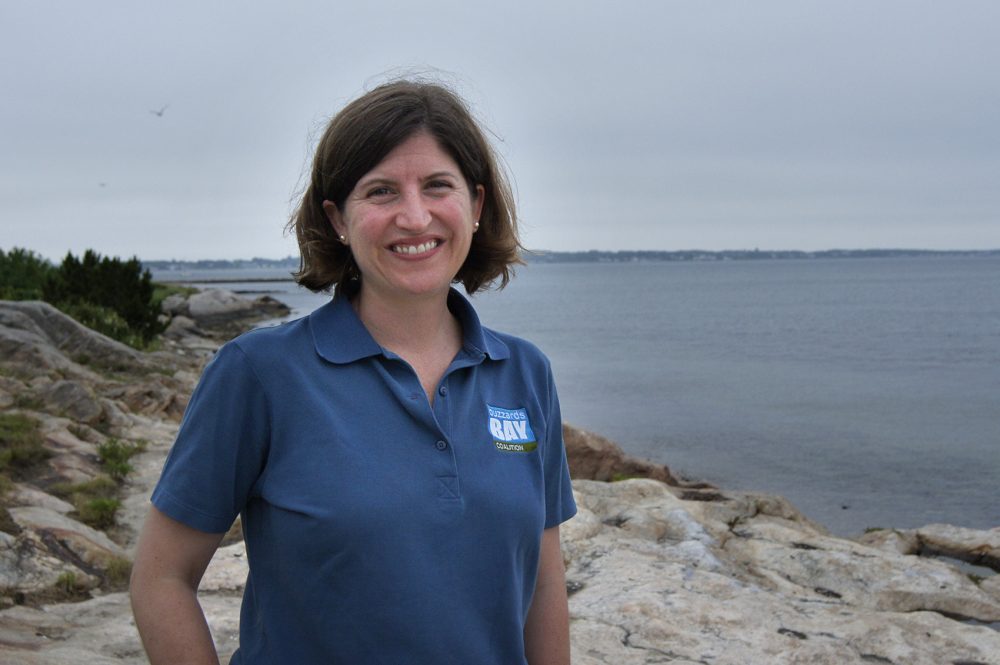
"So what we're concerned about is the increased temperature may be making it more favorable for algae to grow," Jakuba explains. "And if you have too much algae in the water, that's when you get cloudy, murky water, loss of eel grass, low oxygen levels that make it hard for fish and shellfish to survive ... Bay scallops are very rare now because part of their life cycle depends on eel grass blades."
The Buzzards Bay Coalition is attacking that pollution aggressively.
It's working with homeowners to upgrade their septic systems with technology that reduces nitrogen. But that's expensive — up to $30,000 per system. There's a limited number of grants to help out.
Jakuba says as researchers figure out how global warming fits into the bay pollution picture, citizen scientists will be key.
Lobstermen Partner With Ocean Scientists
Mark Sweitzer, 68, is a citizen scientist and lobsterman based at Point Judith in Galilee, Rhode Island.
Sweitzer is one of three fishing boat captains who gather data for the Commercial Fisheries Research Foundation in Rhode Island and Woods Hole Oceanographic Institution.
Six times a month while he's catching lobster, Sweitzer lowers a device to the bottom of the ocean — about 200 feet. It tracks the temperature and other characteristics of the water at every depth, and it syncs the data to an iPad on board.
Sweitzer gets paid for the work, but just a small stipend.
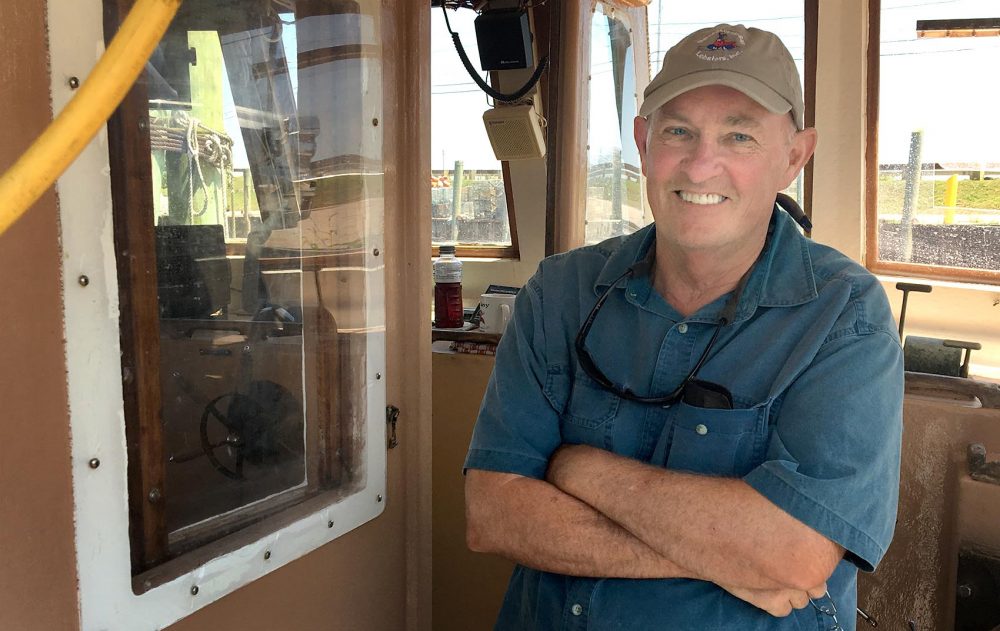
"I'm just happy to do it, because I feel like I'm providing some information — even though it might not have immediate effect on my boat, but in long-term trends in the fishery and how it might influence policy or regulations," Sweitzer says.
There's no immediate effect for lobstermen as they gather data while on fishing trips, because they have to be ahead of the game laying their traps. But some other fishermen can use temperature information in real time.
'It's Urgent'
The expert scientists say the data fishermen are gathering is already changing the way researchers work — because they're getting it weekly, or even daily.
"Traditionally, I go out on a research cruise, take two to three years to work up the data and publish it in a scientific journal," says Glen Gawarkiewicz, a senior scientist at Woods Hole Oceanographic Institution.
Gawarkiewicz says that even before the official partnership began a few years ago, fishermen were spotting trends researchers hadn't seen.
"They reported to us that they were seeing a big increase in the amount of Gulf Stream waters over the continental shelf," Gawarkiewicz recalls.
That means warmer waters from the Gulf Stream were "intruding" westward, into the shallower waters that cover the land jutting out from the continent.
"[The fishermen] could see it through personal observations of things like the water color, the types of seaweed that they saw on the ocean surface there, and then also by the types of species they were catching," Gawarkiewicz says.
Scientists have since confirmed the movement of these "warm core rings" over the continental shelf. Gawarkiwiecz says from last December to February, the water reached temperatures 10 degrees Fahrenheit warmer than usual.
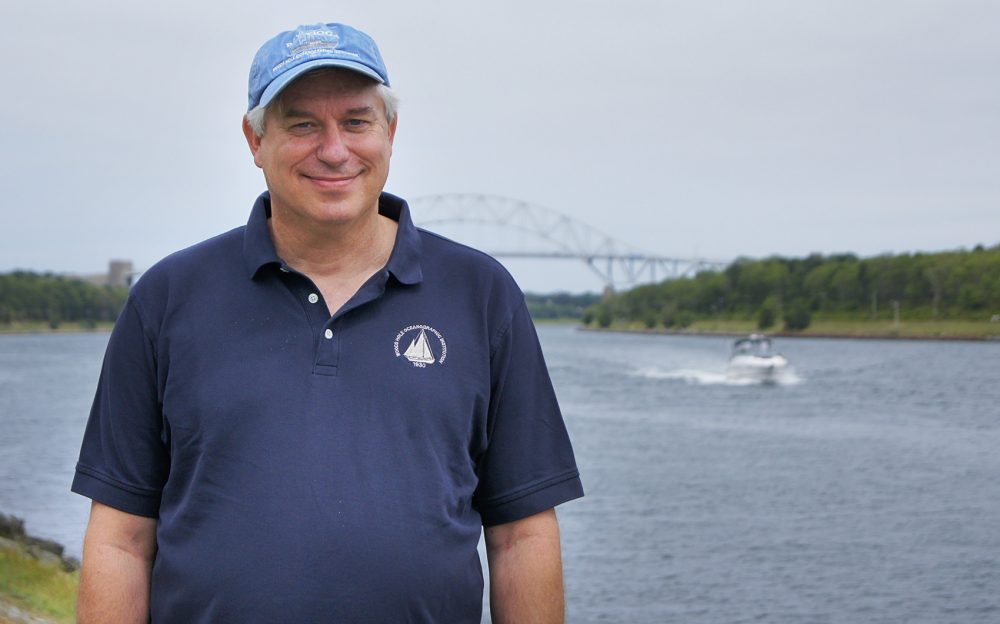
That's vital information for managing fisheries and predicting weather.
"It's urgent," Gawarkiewicz reflects. "And when you get temperature differences that are on the order of 10 degrees Fahrenheit, it's a very, very big effect. And it obviously affects the geochemistry of the water column ... Another issue is how is this affecting seasonal movements, how is it affecting population dynamics."
Sweitzer, the lobsterman, says the ocean changes are affecting the lobsters he's chasing.
"The settlers — the tiny little ones that are four days old that have reached the bottom — there is a temperature at which they will not survive," Sweitzer explains. "And there are temperatures at which we have an influx of fish. Black sea bass used to be primarily a mid-Atlantic fish. And now ... the black sea bass are down there gobbling up these little lobsters that don't have much of a chance to make it in the first place.
"So you add all these things together, yeah, there's an immediate effect on the lobster fishery from climate change," Sweitzer says.
Woods Hole's Gawarkiewicz says it's hard to place a value on this new kind of partnership that's developed between scientists and fishermen.
"To be able to learn from fishermen who are out at sea much more than I am has been a real humbling experience. It's also transformed how I look at the ocean," Gawarkiewicz says. "[The fishermen] really mean a lot to me ... They are in the front lines of how these changes in the ocean are affecting people, affecting their livelihoods there. I hear from them directly, their stories of being on the ocean, and it affects me very greatly."
This segment aired on August 23, 2017.

